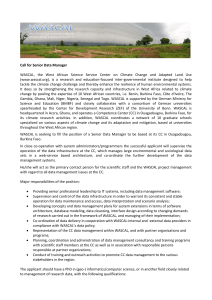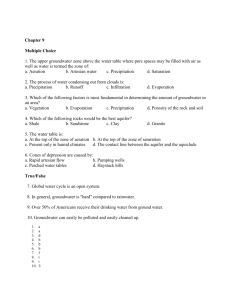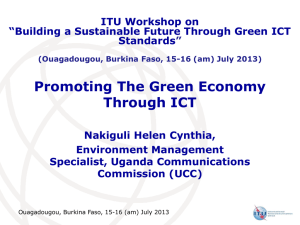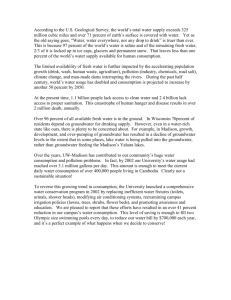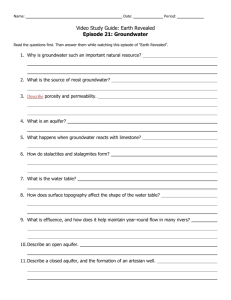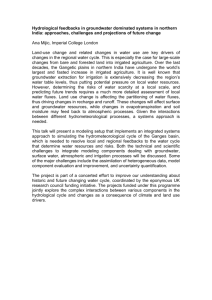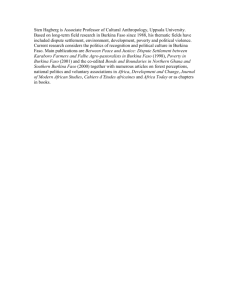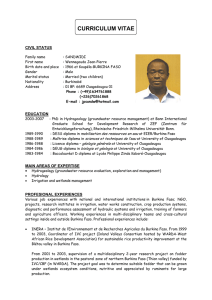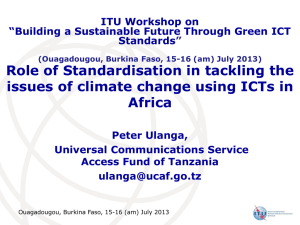climate variability and groundwater storage in a weathered
advertisement
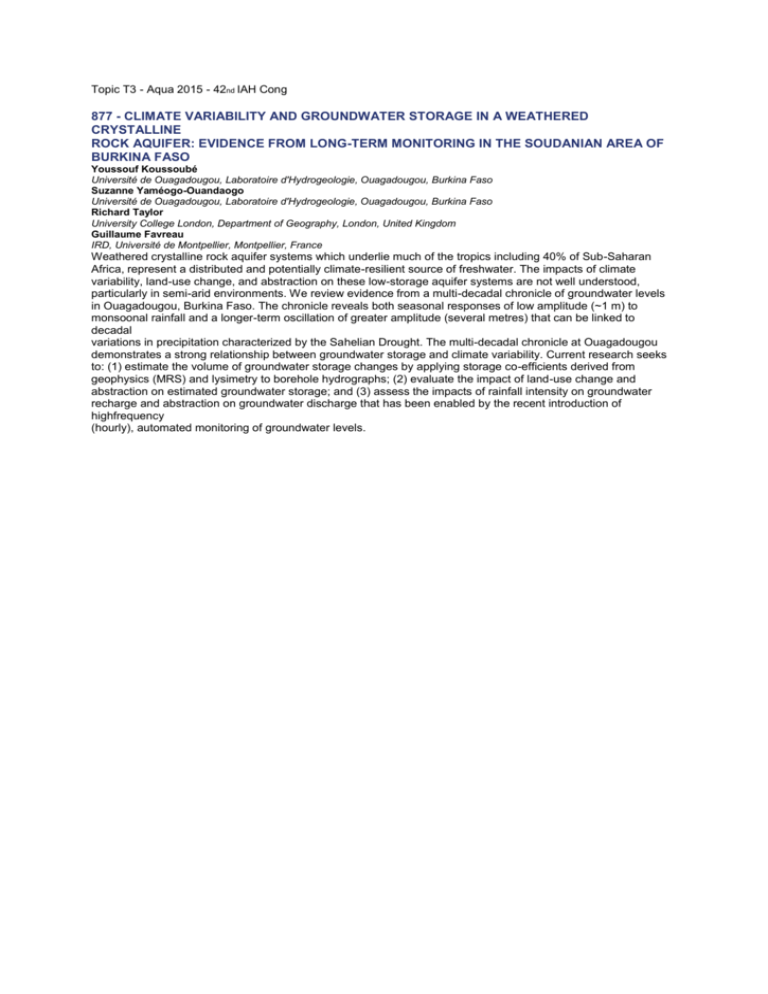
Topic T3 - Aqua 2015 - 42nd IAH Cong 877 - CLIMATE VARIABILITY AND GROUNDWATER STORAGE IN A WEATHERED CRYSTALLINE ROCK AQUIFER: EVIDENCE FROM LONG-TERM MONITORING IN THE SOUDANIAN AREA OF BURKINA FASO Youssouf Koussoubé Université de Ouagadougou, Laboratoire d'Hydrogeologie, Ouagadougou, Burkina Faso Suzanne Yaméogo-Ouandaogo Université de Ouagadougou, Laboratoire d'Hydrogeologie, Ouagadougou, Burkina Faso Richard Taylor University College London, Department of Geography, London, United Kingdom Guillaume Favreau IRD, Université de Montpellier, Montpellier, France Weathered crystalline rock aquifer systems which underlie much of the tropics including 40% of Sub-Saharan Africa, represent a distributed and potentially climate-resilient source of freshwater. The impacts of climate variability, land-use change, and abstraction on these low-storage aquifer systems are not well understood, particularly in semi-arid environments. We review evidence from a multi-decadal chronicle of groundwater levels in Ouagadougou, Burkina Faso. The chronicle reveals both seasonal responses of low amplitude (~1 m) to monsoonal rainfall and a longer-term oscillation of greater amplitude (several metres) that can be linked to decadal variations in precipitation characterized by the Sahelian Drought. The multi-decadal chronicle at Ouagadougou demonstrates a strong relationship between groundwater storage and climate variability. Current research seeks to: (1) estimate the volume of groundwater storage changes by applying storage co-efficients derived from geophysics (MRS) and lysimetry to borehole hydrographs; (2) evaluate the impact of land-use change and abstraction on estimated groundwater storage; and (3) assess the impacts of rainfall intensity on groundwater recharge and abstraction on groundwater discharge that has been enabled by the recent introduction of highfrequency (hourly), automated monitoring of groundwater levels.
